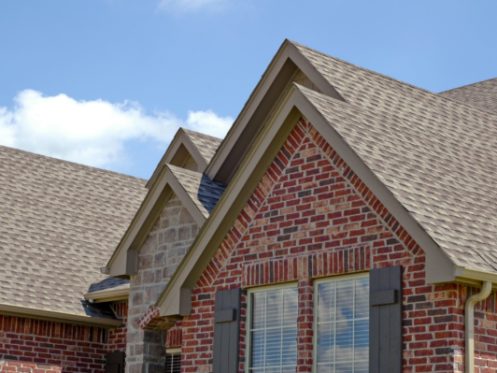Buying a home warranty in Carrollton, Texas is a great way to limit your spending on appliance replacements and repairs. However, if you buy the right type of home warranty, you can also save money on your home’s systems. Certain warranties offer coverage for aging plumbing, electrical, and HVAC systems. If you’ve already purchased a home warranty or if you’re currently shopping for one, the following is everything you need to know about making sure that your heating and cooling equipment is covered.
What’s the Difference Between Your Home Appliances and Your Home’s Systems?
You’ve probably heard your HVAC system referred to as an appliance before. Although this isn’t entirely incorrect, home warranty agreements always consider central heating and cooling equipment as a home system. This is important to remember when using your warranty or shopping for one. There are “appliances-only” products, “systems-only” products, and warranties that are designed to cover both.
“Appliances” refers to any standalone or freestanding unit such as your washer or dryer, your dishwasher, or your oven. These are all things that are covered under appliance-only warranties. However, appliance-only warranties won’t cover portable, free-standing air conditioners, window air conditioners, or space heaters.
Systems-only warranties will cover some or all of your electrical, plumbing, and HVAC replacements and repairs. If you want protection for both your big-ticket appliances and your home’s systems, a combination plan is the right choice.
It’s also important to understand the limitations of home warranties that do offer coverage for HVAC systems. For example, these agreements do not include coverage for HVAC ducting. HVAC air ducts are considered a part of the home itself. As such, all duct repairs and duct replacements must be paid for by you.
Your Home Warranty Will Only Pay for Age-Related Problems
Home warranties cover the costs of wear-related or age-related issues. However, they don’t cover the costs of problems that are the obvious result of neglect. For instance, if your HVAC system has stopped working because you haven’t changed its filter in years, your home warranty provider will not pay to resolve the problem.
Many home warranty companies choose which contractors will perform warranty holders’ HVAC repair and replacement projects. They often have their own approved networks of HVAC companies that they exclusively work with. These relationships ensure that home warranty providers are always duly notified of neglect. If the HVAC company that handles your warranty repair reports that you have dirty ductwork, a blocked HVAC air filter, or other evidence of insufficient maintenance service, you may be billed for the repairs that your warranty company has scheduled, and your warranty may be voided.
HVAC Issues That Might Result in the Voidance of Your Home Warranty
When purchasing a home warranty, you’ll be required to sign a home warranty agreement. This document is a binding, mutual agreement between you and the company that you’ve chosen to work with. As the warranty provider, your home warranty company will promise to handle all reasonable replacement and repair issues for covered items, provided that you fulfill your end of the agreement. As the warranty holder, you’re responsible for staying on top of all manufacturer-recommended maintenance and up to date with any additional maintenance requirements that your warranty agreement specifies.
It is always important to read through your warranty agreement in its entirety. Moreover, if you have questions about anything that’s included in this document, you should contact your provider to get the answers you need.
In addition to properly maintaining your covered systems and appliances, you’re also responsible for making responsible hiring decisions. If any work is performed on your HVAC equipment, it must be performed by a licensed and insured HVAC company. Hiring general handymen, friends, relatives, or other unlicensed parties to do the work can cause both your home warranty and your home insurance policy to be voided.
You also want to consult with your home warranty company before having any integrated HVAC accessories installed. For instance, if you’re interested in air purification, you should ask your home warranty company whether or not you’re allowed to have a media filter, HEPA filter, or air scrubber put in. Although upgrades like these can have a marked impact on your indoor air quality, some additions may increase the amount of stress that your heating and cooling equipment is subject to. Installing integrated accessories that are strictly prohibited by your warranty agreement could result in the loss of your warranty as well.
How Is a Home Warranty Different From Home Insurance?
Most homeowners already have comprehensive home insurance policies in place. If you do, you may be wondering what the value is in adding a warranty plan. While home insurance policies pay for replacements and repairs that have been caused by catastrophic or unexpected events, home warranties pay instead for wear-related issues. For instance, if your home is flooded and your clothes dryer stops working as a result, you’ll want to contact your home insurance company. However, if your clothes dryer is nearing the end of its lifespan and needs increasingly frequent repairs, this is an issue that your home warranty might cover.
Understanding the Mandatory Waiting Period for Home Warranties
Unlike most insurance companies, home warranty companies do not accept month-to-month contracts or monthly payments for their plans. Instead, you will be required to pay the entire year’s premiums upfront. Once you do, you’ll be given your home warranty agreement to read and sign. As soon as this document has been signed by you, a mandatory waiting period will begin. In most cases, Texas homeowners must wait 30 days before they’ll be able to submit their first repair requests.
Mandatory waiting periods ensure that all of a home warranty company’s new clients are acting in good faith. Without waiting periods, many homeowners would buy home insurance policies immediately after their major appliances or home systems failed. After all, if a home warranty company will pay to replace your heating and cooling equipment, the costs of the related premiums will invariably be far cheaper than having to pay for the replacement yourself. Their efforts to prevent these activities are also why home warranty companies require annual premiums to be paid upfront.
Why You Should Document the Maintenance of All Covered Items
Home warranties don’t just require homeowners to diligently maintain all covered items. Often, these companies also check to ensure that this maintenance is being performed. For instance, if you have a major HVAC issue and want your heating or cooling equipment to be replaced outright, your provider will ask to see written or digital records of maintenance services before processing and approving your request. Whenever repair issues come with a high cost, there’s an equally high likelihood that sharing evidence of regular equipment maintenance will be necessary.
Home warranties can be incredibly helpful when aging appliances and systems break down. However, not all home warranties are guaranteed to provide coverage for major home systems like HVAC systems. If you’re unsure of what your warranty covers, refer to your written warranty agreement or contact your home warranty company directly. If you have yet to purchase a warranty and want protection for your HVAC system, shop for a “systems-only” plan or purchase a combination warranty that offers coverage for both home appliances and home systems.
Since 1953, Dring Air Conditioning & Heating has been providing reliable cooling and heating services to residents of Carrollton, Texas. Our clients can also count on us for air duct installation, thermostats, and indoor air quality services. If your HVAC system is in a state of disrepair, we’re here to help. Contact us today to get started.







